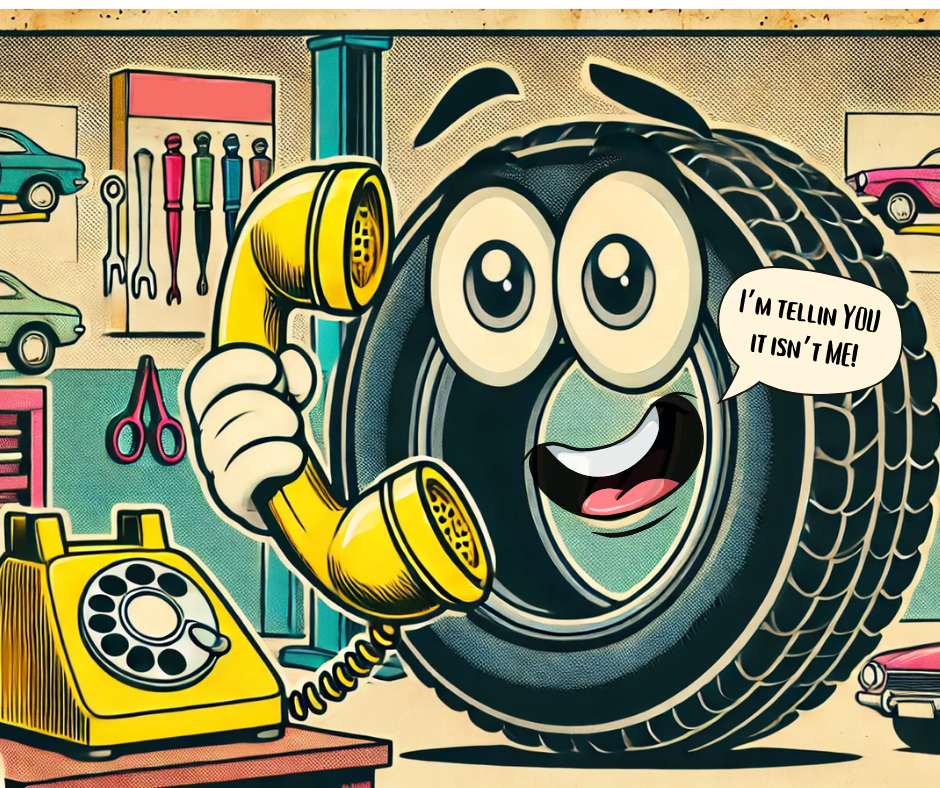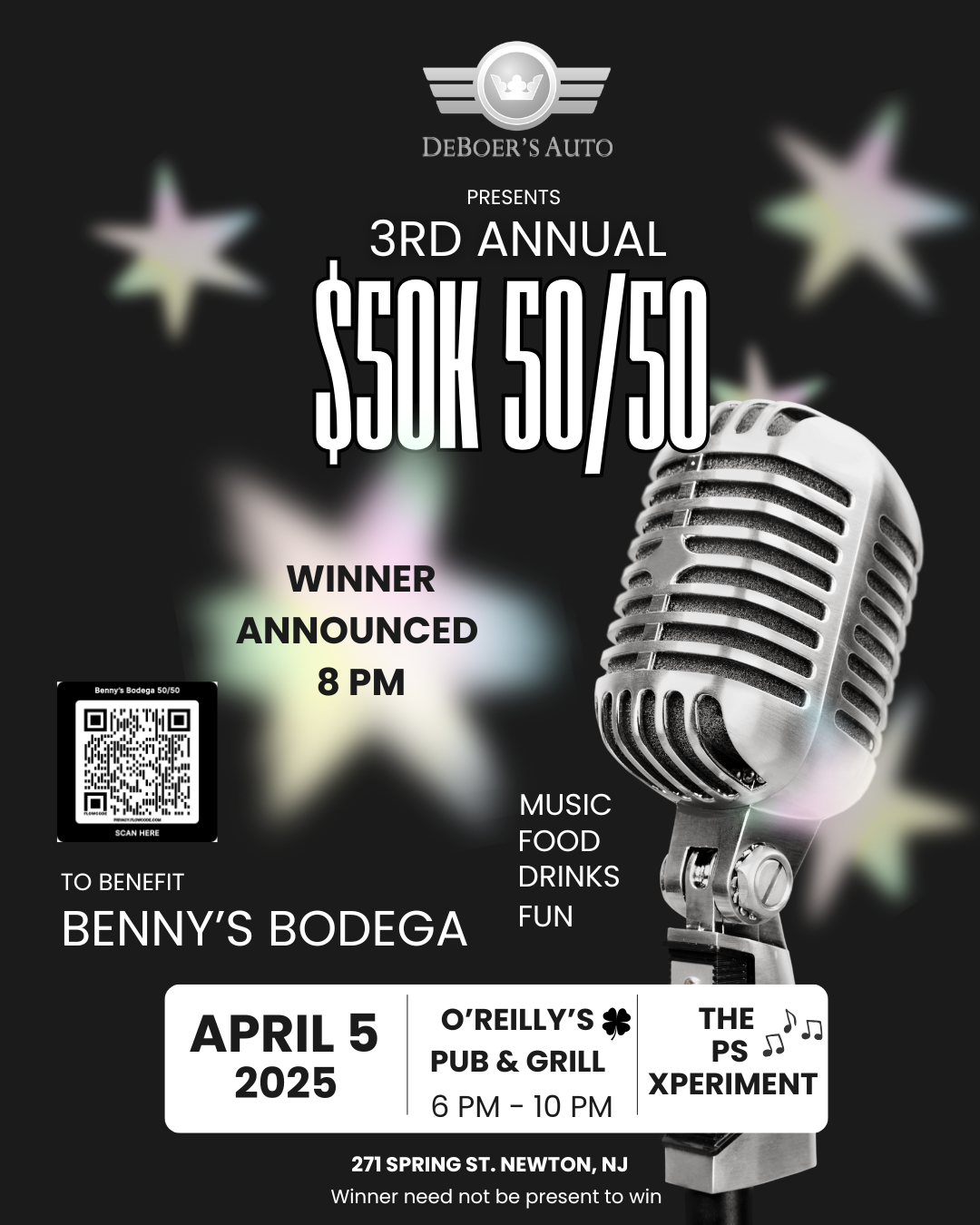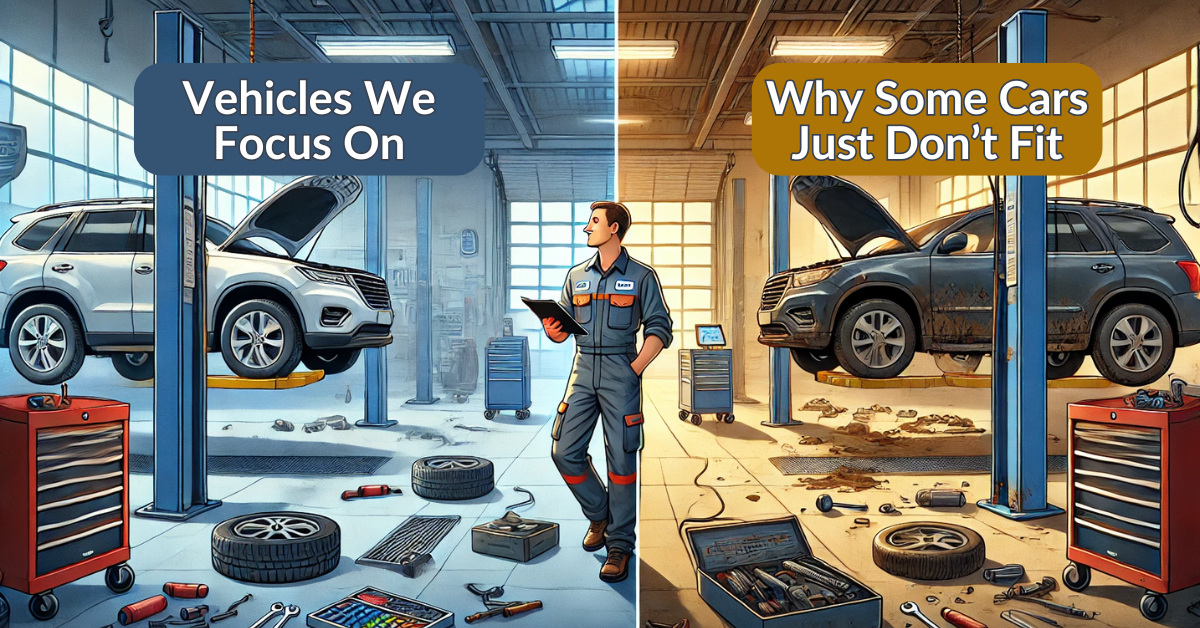Ever feel like your car has suddenly taken up off-roading—right in the middle of your daily commute? When your vehicle starts to shake, shimmy, or just doesn’t ride like it used to, the go-to suspect is usually the tires. But here’s the truth: tires often take the blame when the real issue lies deeper within the vehicle.
Let’s explore the real reasons your ride feels rough—and how to fix them before they turn into bigger (and more expensive) problems.Worn or Damaged Suspension Components
If your car feels bouncy or unstable—especially over bumps or while turning—it could be a suspension issue. Shocks, struts, and other suspension parts are responsible for absorbing road impact and keeping your car stable.
Common signs of suspension trouble include:
Excessive bouncing after hitting a bump
Nose-diving when braking
Uneven tire wear
A clunky or rattling noise when driving over rough surfaces
Ignoring these symptoms can lead to further damage and seriously impact your vehicle’s safety and performance.
Wheel Alignment Problems
Misaligned wheels don’t just make your steering wheel crooked—they can cause your whole vehicle to feel unstable or “drag” to one side.
Watch for these wheel alignment warning signs:
Pulling left or right
Uneven or rapid tire wear
Steering wheel off-center
Vibration at certain speeds
Getting a wheel alignment can improve ride comfort, extend tire life, and even help with fuel economy.
Engine or Transmission Mount Issues
Your engine and transmission are heavy, powerful components, and they’re held in place by rubber or hydraulic mounts that absorb vibration. When those mounts fail or wear down, the results are not subtle—you’ll feel it throughout the cabin.
Symptoms of bad engine or transmission mounts:
Excessive vibration in the seat, floor, or steering wheel
Loud clunks when shifting or accelerating
A “shudder” when the vehicle is under load
This is one of the most overlooked causes of a rough ride—and one of the easiest to misdiagnose as a tire issue.
Brake Problems Causing Vibration
Feel a pulse in the brake pedal or vibration when slowing down? That’s a common sign of warped brake rotors or sticking calipers. While it might feel like a suspension or tire problem, it’s actually your braking system crying for attention.
Other signs to watch for:
Squeaking or grinding noises
A burning smell after driving
Car pulling to one side when braking
Getting your brakes inspected regularly can help you stay ahead of these issues and avoid costly repairs.
Failing Wheel Bearings
Wheel bearings allow your wheels to spin smoothly. When they start to fail, they can cause a grinding or humming noise, uneven tire wear, and yes—a rough ride.
Pay attention to:
A growling or humming noise that increases with speed
Steering that feels loose or “off”
Uneven or scalloped tire tread
Left untreated, bad wheel bearings can lead to unsafe driving conditions—and even wheel separation in extreme cases.
Tire Issues… But Not What You Think
Tires can be the problem—but usually it’s not just that they’re “bad.” The issue might be:
Overinflated or underinflated tires
Cupped or uneven wear caused by suspension or alignment problems
Old tires with worn-out tread or sidewall damage
Sometimes, the tires are just showing symptoms of a deeper issue. A full inspection is the only way to know for sure.
If your car feels rough, unsteady, or just off—it’s time to look beyond the tires. From worn suspension components to alignment issues and engine mount failures, there are several hidden culprits that can make your ride uncomfortable (and unsafe).
At DeBoer’s Auto, we don’t just fix cars—we help people live life uninterrupted. Whether it’s your daily commute or a weekend road trip, we want your ride to be smooth, safe, and reliable. If something doesn’t feel right, trust your gut—contact us and let our team give your vehicle the attention it deserves. Schedule a Ride Comfort Check Today
Schedule a Ride Comfort Check Today
Let’s get you back to that smooth, quiet, confident drive you remember.
